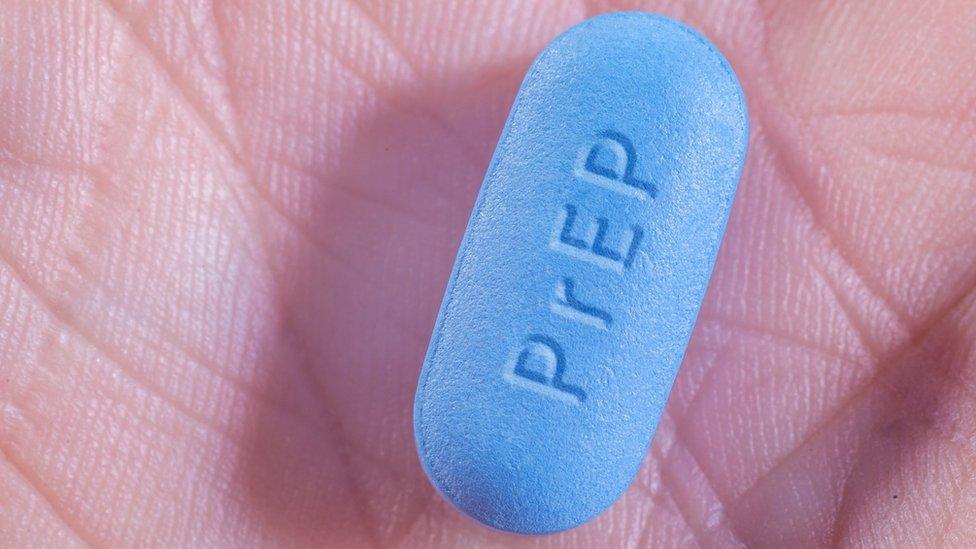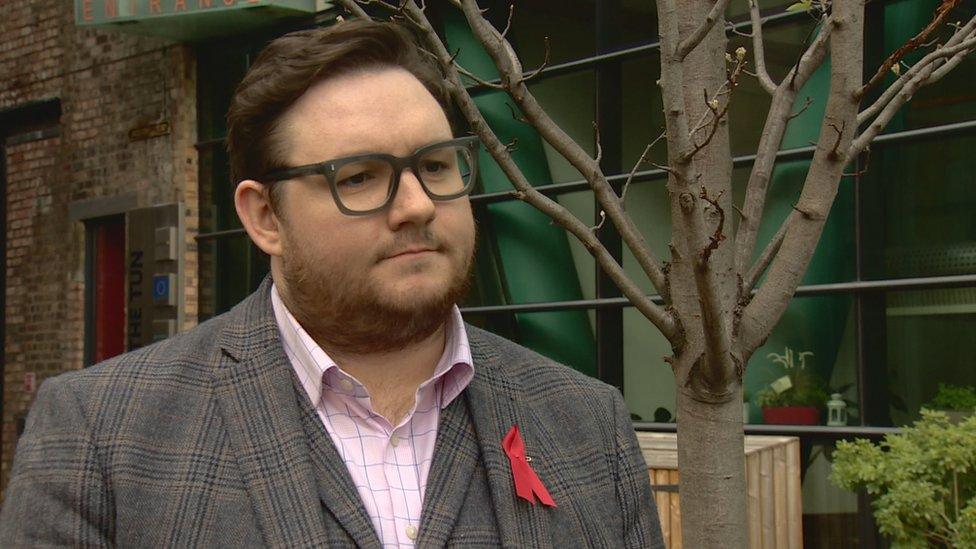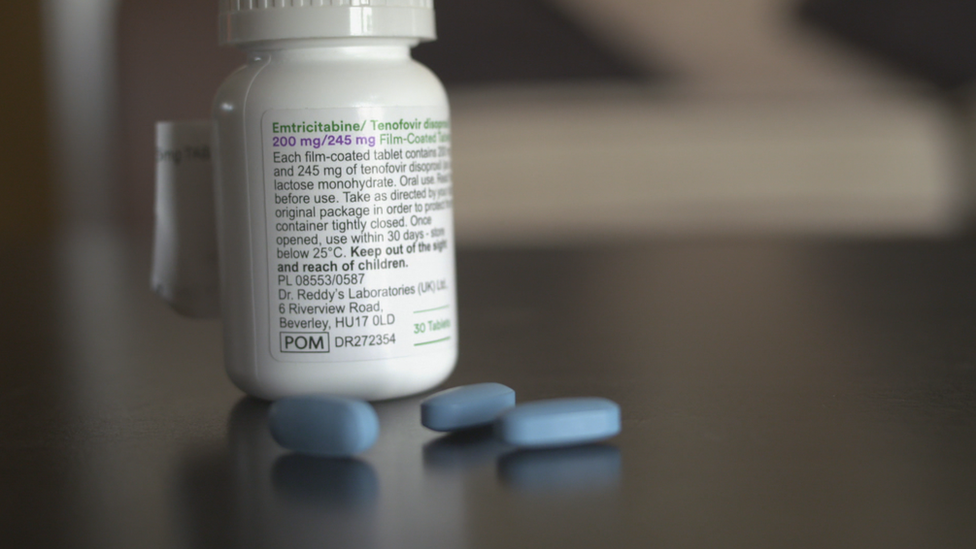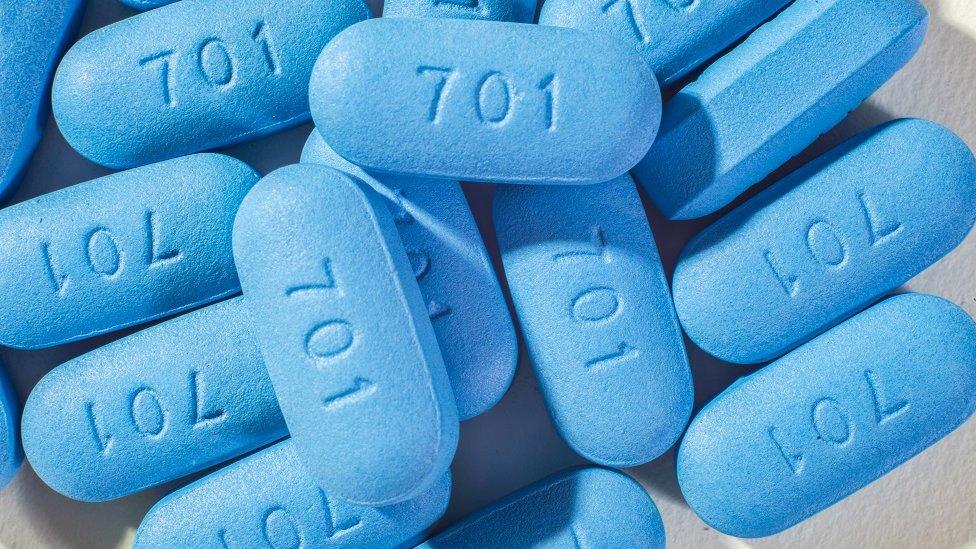Scotland urged to eliminate new HIV transmissions by 2030
- Published

PrEP reduces the risk of HIV-negative people acquiring the infection
Scotland has a chance to eliminate new cases of HIV if it avoids complacency in the fight against the virus, according to a charity.
A new strategy by HIV Scotland is aiming to reach zero new transmissions by 2030.
The country was the first part of the UK to make the drug PrEP available on the NHS.
It is taken by people who are HIV-negative and has been shown to reduce the risk of infection by about 86%.
HIV Scotland says PrEP and other advances mean Scotland is now at a point where new HIV transmission is preventable.
But it says for that to happen more work is needed on tackling the stigma and discrimination around HIV - along with better education and new medical treatments.

Nathan Sparling, chief executive of HIV Scotland, said considerable progress had been made in recent years
Speaking at the launch of the strategy later, Nathan Sparling, chief executive of HIV Scotland, will say: "Thanks to PrEP and other medical advances we are now at a point where every new HIV transmission in Scotland is preventable.
"However, as a charity, as a sector, and as a country, we must not be complacent about the progress we have made.
"Getting to zero is not inevitable, and we cannot view it as such."
At the launch of ZEROHIV, Mr Sparling will hail the great strides that have been made in recent years.
He will add: "This strategic plan is the foundation on which we can build a future where HIV transmissions are a thing of the past, a future where no one finds themselves in hospital because of a missed opportunity for testing, a future where nobody living with HIV has to live in fear of the insidious, misinformed stigma that potentially lies around every corner.
"We can beat this. We will beat this."
It is estimated there are currently more than 5,000 people living in Scotland with HIV.
In 2017, there were 368 new cases - the highest in three years but there is optimism this can be reduced significantly.
- Published26 February 2019

- Published11 January 2019

- Published10 April 2017
